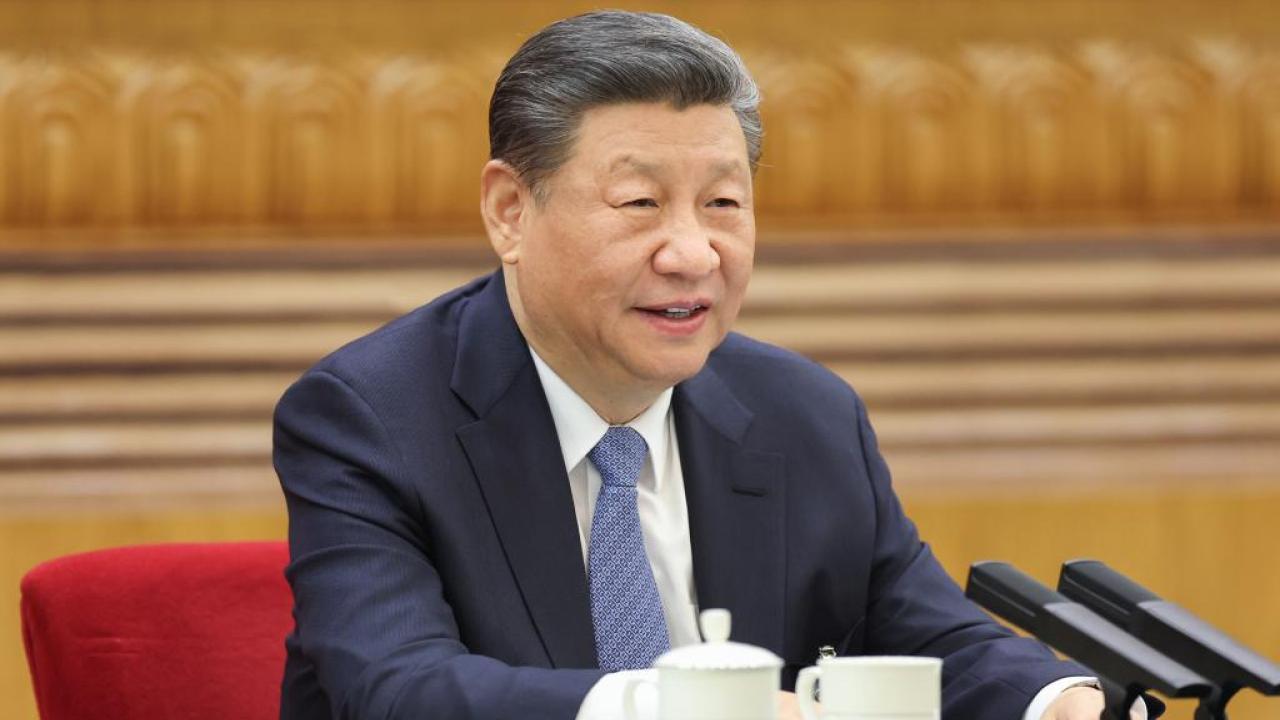
Beijing has also added US multinationals Ilumina and PVH Group, owner of Calvin Klein, to its list of "unreliable" entities.
China will impose additional tariffs on certain US products starting February 10, the Customs Tariff Commission of the State Council, the Chinese cabinet, said on Tuesday.
The move is in line with the basic principles of international law and Chinese laws and regulations such as tariff law, foreign trade law and customs law, the commission said in a statement.
The text specifies that China will impose an additional 15 percent tariff on imports of coal and liquefied natural gas from the United States.
Crude oil, agricultural machinery, large-capacity cars and pickup trucks will be subject to an additional 10% tariff, the source said.
Lists of specific products that will be subject to additional tariffs are available in the attached documents.
For these products, the corresponding tariffs will be added to the current tariff rates. The current policies on free trade zones as well as tax reduction and exemption will remain unchanged, and the additional tariffs imposed this time will not be reduced or waived, according to the statement.
On February 1, the US government announced the imposition of an additional 10 percent tariff on goods imported from China.
GOOGLE INVESTIGATION AND SANCTION FOR THE OWNER OF CALVIN KLEIN
Chinese authorities also announced on Tuesday that they were launching an antitrust investigation against Google, and that they had added US multinationals Illumina and PVH Group, the owner of Calvin Klein and Tommy Hilfiger, to the list of "unreliable" entities.
The measures against these American companies come on top of Beijing's decision to apply export controls on a number of metals such as tungsten and bismuth, after having announced the imposition of tariffs on American products, including a 15% tax on coal and liquefied gas and 10% on oil, starting next Monday, February 10.
Specifically, the State Administration for Market Regulation of China has decided to launch an investigation into the suspicion that Google, which stopped its search services in the country in 2010, "violates the Antimonopoly Law of the People's Republic of China," it reported on Tuesday without offering further details on the matter.
Meanwhile, China's Ministry of Commerce announced today that US companies PVH Group and Illumina have been placed on the list of unreliable entities.
The Chinese Ministry of Foreign Affairs accuses the two companies of violating market trade principles, disrupting normal transactions with Chinese companies, adopting discriminatory measures against Chinese companies, and seriously damaging the legitimate rights and interests of Chinese companies.
The company has warned that appropriate measures will be taken against the companies in question in accordance with the relevant laws and regulations.
At the same time, China's Ministry of Commerce has announced the implementation of export controls on metals such as tungsten, bismuth, molybdenum and tellurium "in order to safeguard national security and interests."
This series of measures is in addition to the imposition of tariffs on American products, in particular 15% on coal and liquefied gas and 10% on oil, agricultural machinery, large-capacity cars and pickup trucks, starting next Monday, February 10.
The Chinese Ministry of Finance announced this in a statement published on its website, after the additional 10% tariff on Chinese products ordered by US President Donald Trump came into effect.
"The unilateral imposition of tariffs by the United States seriously violates World Trade Organization (WTO) rules. Not only does it not help solve its own problems, but it also disrupts normal economic and trade cooperation between China and the United States," the Chinese ministry said.
The Chinese Ministry of Commerce announced on Sunday that it will file a complaint with the WTO against the US measure.
BEIJING'S "MODEST" RESPONSE.
"The measures are fairly modest, at least relative to US measures, and have clearly been calibrated to try to send a message to the US and local public without inflicting too much damage," said Julian Evans-Pritchard, chief China economist at Capital Economics, who believes the risk that the retaliation could ultimately backfire and encourage Trump to raise tariffs further cannot be ruled out.
According to the consultancy's calculations, the tariff measures announced by Beijing would affect goods worth up to US$20 billion in annual imports, around 12% of China's total imports from the US, "a far cry from the more than US$450 billion in Chinese products that are in the US's sights."
In fact, the expert points out that all strategic items that China imports from the US, including high-end chips, semiconductor machinery, pharmaceuticals and aerospace equipment, were not subject to sanctions.
In addition to the tariff measures, the economist believes that the decisions regarding mineral exports, the investigation into Google and the inclusion of Illumina and PVH on the 'blacklist' would be warnings that China can harm American interests if necessary, although he stresses that Beijing leaves open the "option of turning back."
The tariffs could then be postponed or cancelled before they take effect on 10 February, the investigation against Google could end without any penalties and China could continue to approve export licences for the minerals in question.
"Beijing is presumably hoping to follow in the footsteps of Mexico and Canada and strike a deal with Trump to reverse the latest tariff hike," Evans-Pritchard concludes, although she notes that the underlying economic and political grievances between the two powers "run much deeper than those between the United States and its neighbours."
"The risk is that China's retaliation will prove too modest to exert real pressure on the US to roll back the tariffs, but challenging enough to trigger a further escalation of trade tensions with the US," he added.









